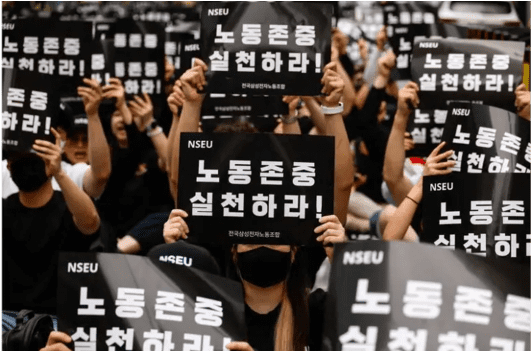
Hollywood's strongest supporting actor has been launched, AI is not far from subverting "Dreamworks"?
As a major city in the United States and even the global film industry, Hollywood has gathered a large number of veteran film and television production companies, including Universal Pictures, Warner Bros., Paramount Pictures, Disney Pictures, MGM Pictures, etc. In addition, new streaming forces such as Netflix have also entered in recent years. When the new generation of technology represented by generative AI sweeps the world, the movie "dream factory" is also experiencing a transformative moment. In early May last year, the US film and television industry launched a series of strikes that lasted for five months. Two labor disputes, led by the Writers Guild and the Screen Actors Guild, have caused the worst industry disruption since the 2020 pandemic, forcing many film projects and TV shows to halt or delay production. The strike has been costly, with Kevin Klowden, chief global strategist at the Milken Institute think tank, estimating it has cost the U.S. economy more than $5 billion, affecting not only film and television production companies, but also surrounding service industries such as catering, trucking and dry cleaning. One of the main conflicts between labor and management is that many actors and screenwriters have expressed concerns about "unemployment" due to the "invasion" of artificial intelligence. Luo Chenya has been working in the film and television industry for more than 10 years, including scriptwriter, documentary photographer and assistant director. She told the first financial reporter that after ChatGPT became popular, she also tried to use chatbots to assist script creation. "I can talk to the AI about my ideas and ideas, and it will help analyze and refine my ideas, and even make some suggestions that I think are quite effective." But on the execution level, the idea of writing it down into a very specific scene, character action, it doesn't really help me." Luo Chenya said that AI still needs more training and evolution in script writing, but the ability to present images is amazing. "AI can directly generate images, which can indeed save labor to a great extent, and may even replace photographers in the future." In post-production, AI can beautify images and modify flaws." A place to be fought over Earlier this year, OpenAI released the Vincennes video model Sora on its website, which can create videos up to a minute long, generating complex scenes with multiple characters, specific types of movement, and precise theme and background details. In addition to being able to generate video from text, the model can also generate video from still images, precisely animating the image content. "Vincennes Video can quickly produce high-quality video content, greatly improving production efficiency, and generative AI helps to improve the analysis of user preferences and personalized recommendations, and enhance the attractiveness of content." These technologies will disrupt traditional video production and content distribution models, and media companies need to adapt and change their operating models." Wang Haoyu, CEO of Mairui Asset Management, said in an interview with the first financial reporter. For this reason, Hollywood giants have long made big bets and stepped up their layout.

The largest password leak in history exposes nearly 10 billion credentials
The largest collection of stolen passwords ever has been leaked to a notorious crime marketplace, according to cybersecurity researchers at Cybernews. This leak, dubbed RockYou2024 by its original poster “ObamaCare,” holds a file containing nearly 10 billion unique plaintext passwords. Allegedly gathered from a series of data breaches and hacks accumulated over several years, the passwords were posted on July 4th and hailed as the most extensive collection of stolen and leaked credentials ever seen on the forum. “In its essence, the RockYou2024 leak is a compilation of real-world passwords used by individuals all over the world,” the researchers told Cybernews. “Revealing that many passwords for threat actors substantially heightens the risk of credential stuffing attacks.” Credential stuffing attacks are among the most common methods criminals, ransomware affiliates, and state-sponsored hackers use to access services and systems. Threat actors could exploit the RockYou2024 password collection to conduct brute-force attacks against any unprotected system and “gain unauthorized access to various online accounts used by individuals whose passwords are included in the dataset,” the research team said. This could affect online services, cameras and hardware This could affect various targets, from online services to internet-facing cameras and industrial hardware. “Moreover, combined with other leaked databases on hacker forums and marketplaces, which, for example, contain user email addresses and other credentials, RockYou2024 can contribute to a cascade of data breaches, financial frauds, and identity thefts,” the team concluded. However, despite the seriousness of the data leak, it is important to note that RockYou2024 is primarily a compilation of previous password leaks, estimated to contain entries from a total of 4,000 massive databases of stolen credentials, covering at least two decades. This new file notably includes an earlier credentials database known as RockYou2021, which featured 8.4 billion passwords. RockYou2024 added approximately 1.5 billion passwords to the collection, spanning from 2021 through 2024, which, though a massive figure, is only a fraction of the reported 9,948,575,739 passwords in the leak. Thus, users who have changed their passwords since 2021 may not have to panic about a potential breach of their information. That said, the research team at Cybernews stressed the importance of maintaining data security. In response to the leak, they recommend immediately changing the passwords for any accounts associated with the leaked credentials, ensuring each password is strong and unique and not reused across different platforms. Additionally, they advised enabling multi-factor authentication (MFA), which requires an extra form of verification beyond the password, wherever possible, to strengthen cyber security. Lastly, tech users should utilize password manager software, which securely generates and stores complex passwords, mitigating the risk of password reuse across multiple accounts.

Porsche AG reports sharp fall in China deliveries
July 9 (Reuters) - German sportscar maker Porsche (P911_p.DE), opens new tab said on Tuesday that global vehicle deliveries were down 7% in the first half of the year compared to the same period in 2023, primarily driven by a 33% year-on-year drop in China. Porsche, majority-owned by Volkswagen (VOWG_p.DE), opens new tab, is highly exposed to the EU-China tariff tensions, with deliveries to China accounting for nearly 20% of global deliveries. An HSBC analyst pointed to weakness in the European car market, saying that "the market is, understandably, worried about China pricing weakness and the prospect of needing to pay dealer compensation." Overall, Porsche delivered 155,945 cars worldwide during the first six months of the year. In North America, deliveries were down 6% year-on-year. Meanwhile, in Porsche’s home market of Germany, deliveries increased by 22% to 20,811 vehicles.

SpaceX astronaut returns with an incredible change in his body
A provocative new study reveals the complex effects of the space environment on human health, providing insight into potential damage to blood, cell structure and the immune system. The study focused on SpaceX's Inspiration4 mission, which successfully sent two men and two women into space in 2021 to orbit the Earth for three days and shed some light on the effects of space travel on the human body. The research data, derived directly from the Inspiration4 mission, shows that even a brief trip to space can significantly damage the human immune system, trigger an inflammatory response, and profoundly affect cell structure. In particular, space travel triggered unprecedented changes in cytokines that play a key role in immune response and muscle regulation but are not usually directly associated with inflammation. In particular, the study found a significant increase in muscle factors, which are physiological responses specific to skeletal muscle cells in microgravity, rather than a simple immune response. Although non-muscular tissues did not show changes in proteins associated with inflammation, specific leg muscles such as soleus and tibialis anterior muscles showed significant signs of metabolic activity, especially increased interleukin in the latter, further enhancing the activation of immune cells.

Russian military launches massive missile attack, Kiev children's hospital hit; President Biden issues statement condemning Russia's "brutalism"
A children's hospital in the Ukrainian capital was hit by a Russian missile on Monday as part of a wave of airstrikes across Ukraine that has killed at least 31 people and injured 154 others. "Russian terrorists have once again launched a massive missile attack on Ukrainian cities - Kiev, Dnipro, Kryvyi Rih, Slaviansk, Kramatorsk," said Ukrainian President Volodymyr Zelenskyy. Zelensky said Russia fired more than 40 missiles of different types at the five cities in daytime attacks, hitting residential buildings and public infrastructure. The Ukrainian air force said it intercepted 30 missiles. Authorities said the attack on Kiev killed seven people, while the attack on Kryvyi Rih, Zelensky's birthplace in central Ukraine, killed 10 and injured 47. United Nations Secretary-General António Guterres condemned the attacks, calling the assault on the Kiev hospital and another medical facility in the capital's Dniprovsky district "particularly egregious," said his spokesman, Stephane Dujarric. "Direct attacks on civilians and civilian objects are prohibited under international humanitarian law. Any such attacks are unacceptable and must cease immediately," Dujarric said. The U.N. Security Council will meet Tuesday to discuss the Russian strikes, diplomats said. The Russian Defense Ministry said the strikes targeted Ukrainian defense factories and a military aviation base and were successful. It denied striking any civilian facilities and claimed, without evidence, that photos from Kiev showed the damage was caused by a Ukrainian anti-aircraft missile. Ukrainian Air Force Colonel Yurii Ignat said Russia has been improving the effectiveness of its air strikes by equipping its missiles with enhanced features, including so-called heat decoys that can throw air defense systems off target. In comments sent to The Associated Press, he said the cruise missiles flew low in Monday's attack -- just 50 meters off the ground -- making them harder to hit. Western countries, led by the United States, have provided Ukraine with billions of dollars in arms support. They will hold a three-day NATO summit in Washington starting Tuesday to work out how to reassure Kiev of NATO's strong support and give Ukrainians hope that their country can survive the largest conflict in Europe since World War II. "Today's Russian missile strike that killed dozens of Ukrainian civilians and caused damage and loss of life to Kyiv's largest children's hospital is a horrifying reminder of Russia's brutality," U.S. President Joe Biden said in a statement Monday. "It is critical that the world continues to stand with Ukraine at this important moment and that we do not ignore Russian aggression." Biden said in the statement that he will meet with President Zelensky during the NATO summit in Washington this week "to make clear our unwavering support for Ukraine." Biden continued: "We will join our allies in announcing new measures to strengthen Ukraine's air defenses and help protect their cities and civilians from Russian attacks. The United States stands with the Ukrainian people." Czech President Petr Pavel said the hospital attack was "inexcusable" and he hoped the NATO summit would reach a consensus that Russia is "the greatest threat and we must be fully prepared to deal with it." Zelensky said during a visit to Poland that he hoped the NATO summit would provide Ukraine with more air defense systems. The Ukrainian leader said rescuers were digging through the rubble of the Ohmatdit Children's Hospital in Kyiv and that the number of casualties was not yet known. Kyiv Mayor Vitali Klitschko said at least 16 people were injured, including seven children, and the attack caused a two-story wing of the hospital to partially collapse. Doors and windows were blown off the hospital's 10-story main building, and the walls were charred. The floor of one room was splattered with blood. Hospital officials said the intensive care unit, operating room and oncology department were damaged.





